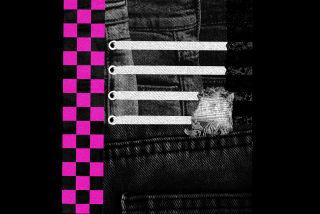Teacher Came to Class in Sikh Garb; Firing Upheld
- Share via
SALEM, Ore. — The firing of a Sikh schoolteacher for conducting her class while wearing the religion’s traditional white robes and turban has been upheld by the Oregon Supreme Court.
The unanimous decision upheld a state law that forbids teachers from wearing religious garb in the classroom.
While the ruling extended the ban to religious dress that conveys to schoolchildren a “degree of religious commitment,” it fell short of including “common decorations” such as a small cross or the Star of David.
The ruling came in the case of Janet Cooper, a Sikh fired in 1983 and whose teaching certificate was revoked for wearing her religion’s traditional garb while teaching at a Eugene elementary school.
Cooper, whose Sikh name is Karta Kaur Khalsa, filed suit in 1984 challenging the law as too vague and a violation of her constitutional right to freedom of religion.
The state law, which dates back to 1923, requires school districts to suspend teachers who wear religious clothing to class and for the state superintendent of public instruction to revoke the teacher’s certificate.
In October, the Oregon Court of Appeals struck down the penalty portion of the law, saying mandatory revocation of a teaching certificate was too harsh and violated the Constitution.
The Eugene School District and state Superintendent of Public Instruction Verne Duncan appealed the lower court ruling, which they claimed resulted in confusion over the status of the law and how to handle similar cases in the future.
In reversing the appeals court, the state Supreme Court said the law does not violate a teacher’s religious beliefs if the statute is narrowly interpreted and carefully administered.
“A law restricting religious dress must be justified by a determination that religious dress necessarily contravenes the wearer’s role or function at the time and place,” the court said in an opinion written by Justice Hans A. Linde.
The court defined religious dress as that which “is worn by reason of religious importance to the teacher” and also conveys to typical school-age children “a degree of religious commitment beyond the choice to wear common decorations,” such as a necklace with a small cross or Star of David.
The court said restrictions in the law must also be confined to situations where the teacher deals directly with students.
“The concerns of the law is not the mere knowledge that a teacher is an adherent of a particular religion,” the court said. “It is that the teacher’s appearances in religious garb may leave a conscious or unconscious impression among young people and their parents that the school endorses” the teacher’s religion.
More to Read
Sign up for Essential California
The most important California stories and recommendations in your inbox every morning.
You may occasionally receive promotional content from the Los Angeles Times.













